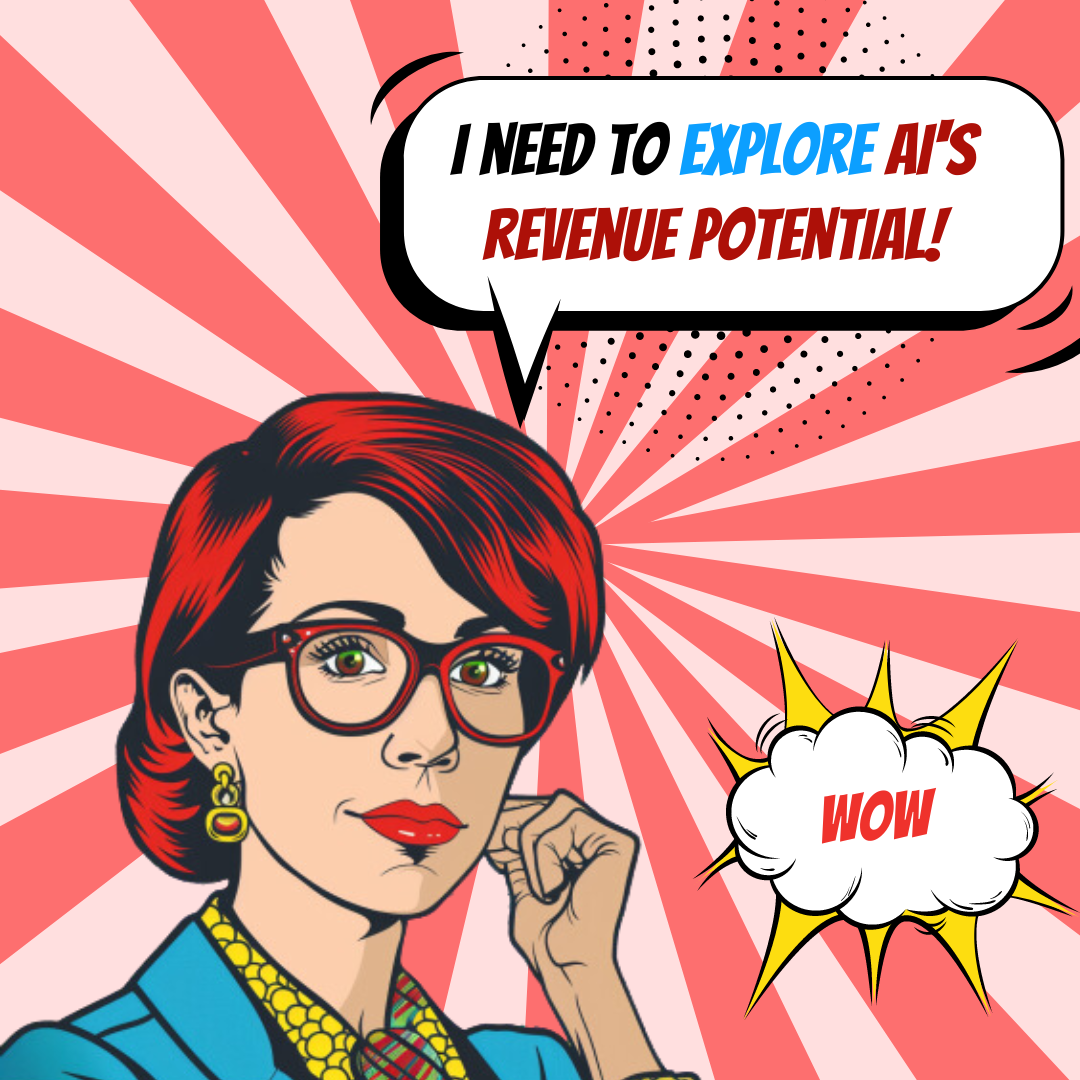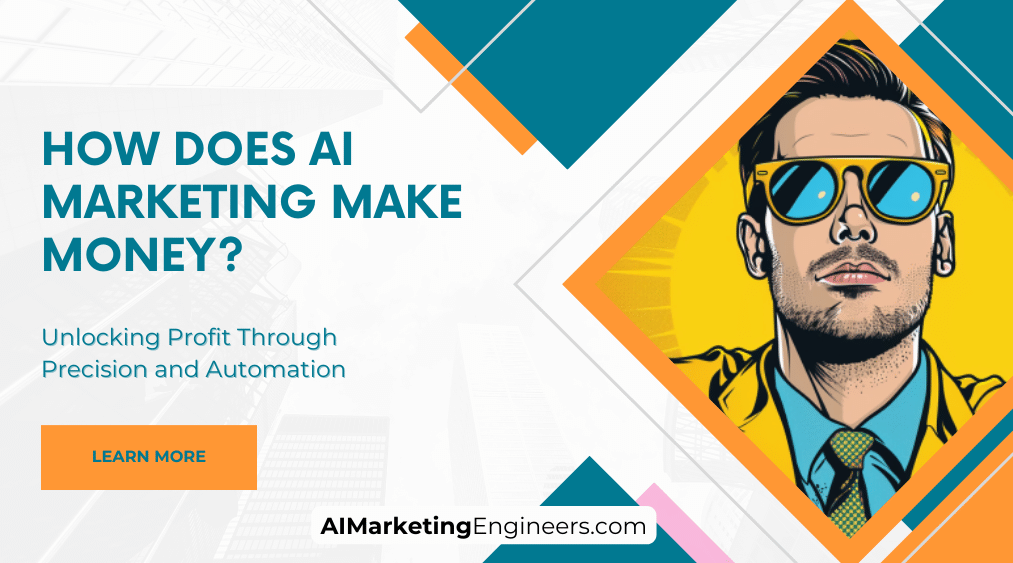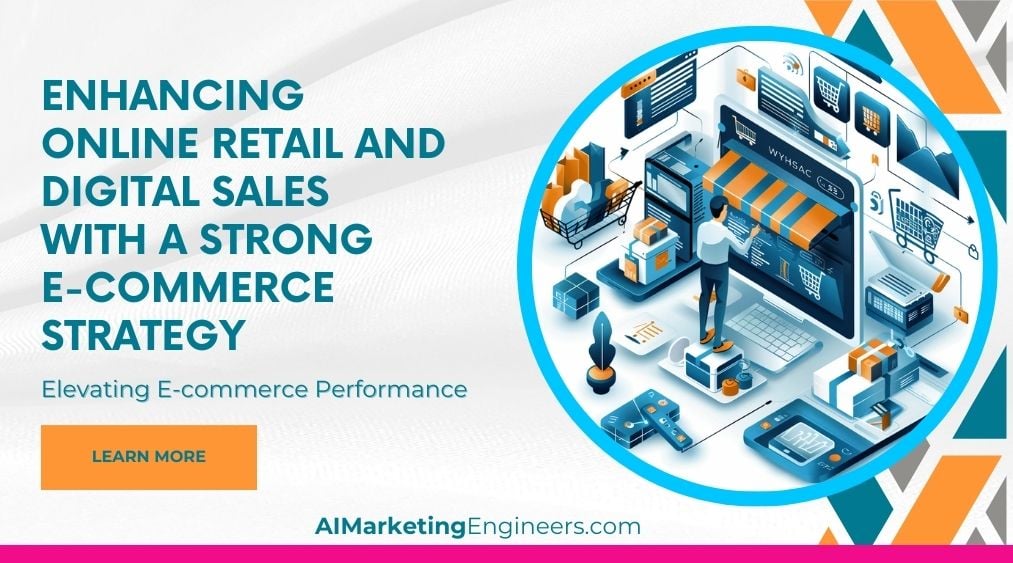Key Takeaways
✅ Personalization at Scale: AI's advanced targeting capabilities mean businesses can deliver personalized experiences to customers without sacrificing the scope or reach of their marketing efforts, thereby enhancing customer engagement and increasing conversion rates.
✅ Predictive Power: Utilizing AI for predictive analytics allows businesses to foresee and adapt to customer behaviors, demands, and market trends, facilitating dynamic pricing strategies and aiding in resource allocation to maximize revenue.
✅ Strategic Resource Optimization: Through automation and AI-driven insights, businesses can free up human resources from repetitive tasks to focus on strategy and innovation, while also significantly cutting down on costs and improving marketing ROI.

Introduction
Welcome to the future of marketing, where artificial intelligence (AI) isn't just a buzzword—it's your business's new best friend in driving revenue! Imagine a world where your marketing efforts are not only streamlined but also intricately tailored to every single customer, tapping into their desires and needs with almost supernatural precision.
In this eye-opening article, we're diving deep into the lucrative world of AI marketing to unveil how it's not just changing the game—it's completely reinventing it. From crafting personalized customer journeys that feel like a concierge service to predicting the hottest sales trends before they even catch fire, AI marketing is the secret sauce for fattening your bottom line.
Whether you're a seasoned marketer or new to the digital jungle, let's embark on this adventure to discover the treasure trove of opportunities AI marketing brings to amassing wealth for businesses like yours.

Enhanced Targeting and Personalization
AI marketing algorithms excel at dissecting through massive datasets to find the ideal customer profiles for a product or service. By considering a user's digital footprint—such as past purchases, search history, and social media activity—AI can personalize marketing efforts to suit individual preferences. The result is a more personalized customer journey, which aligns with consumers' expectations for tailored experiences. This degree of customization not only elevates customer satisfaction but also translates into better conversion rates and higher profit margins, as marketing campaigns resonate more effectively with their intended audience.
Predictive Analytics and Dynamic Pricing
AI's capacity to predict future trends and customer behaviors powers a strategic advantage in marketing. Predictive analytics gives businesses foresight into possible future actions of consumers, like purchasing patterns and likelihood of churn. Businesses can adjust their strategies proactively, ensuring they're always a step ahead.
Additionally, dynamic pricing is a direct application of AI, where prices are adjusted in real-time based on various factors including demand, stock levels, and competitor pricing. This fluid pricing strategy can significantly bolster revenue by capturing the maximum willingness to pay at any given moment.
Customer Lifetime Value Optimization
Calculating and optimizing for Customer Lifetime Value (CLV) is vital for sustained business growth. AI systems evaluate long-term behavioral data, enabling businesses to discern which customer segments are more likely to develop into loyal patrons or brand ambassadors. The insights gleaned from AI help prioritize and tailor marketing efforts to retain high-value customers, thereby maximizing the CLV and contributing to a robust bottom line.
Improved Content Relevance and Engagement
AI-driven content strategies ensure that the material presented to users is relevant and engaging. Content personalization ensures that each user interaction is meaningful, promoting higher engagement rates. When users find content that aligns with their interests, they're more likely to engage with the brand, share content, and convert into paying customers, all activities that contribute to larger revenue streams.
Prioritization of Marketing Tasks
AI's role in marketing isn't limited to customer interaction; it greatly assists in task management within the marketing team. Automation tools can take over routine tasks, freeing human marketers to concentrate on strategy and creative initiatives that require a human touch. Optimizing the team's focus in this way not only improves overall productivity but also generates more opportunities for revenue through strategic initiatives.
Predictive ROI Analysis
Making informed marketing investments is crucial for a good ROI. AI analyzes past campaign performances and predicts future outcomes, guiding marketers on where to place their bets. With a clearer picture of potential ROI, businesses can strategically fund high-impact campaigns and discontinue underperforming ones, ensuring marketing budgets are utilized with maximum efficiency.
Increased Efficiency and Cost Savings
Efficiency and cost savings are among the core advantages of integrating AI into marketing. Automated systems reduce labor costs associated with manual tasks, allowing these funds to be redistributed into more impactful marketing efforts. By minimizing human error and enhancing targeting precision, AI ensures that every dollar spent on marketing is used as effectively as possible, contributing to both top and bottom-line growth.
AI Marketing Engineers Recommendation
AI marketing is a method of leveraging artificial intelligence technology to make automated decisions based on data collection, data analysis, and additional observations of audience or economic trends that could impact marketing efforts. Here are some ways in which AI marketing can generate revenue:
1. Enhanced Personalization and Targeting:
AI algorithms can analyze customer behavior, preferences, and engagement patterns at an unprecedented scale. By doing so, businesses can create highly personalized marketing messages and offers, tailored to individual consumers or similarly behaving segments. This increased relevance can boost conversion rates and foster loyalty.
2. Predictive Analytics:
AI can predict future consumer behaviors based on historical data. For instance, it can forecast the likelihood of a customer making a purchase or the potential lifetime value of a customer. This enables marketers to focus their efforts on prospects that are more likely to convert, thus optimizing marketing spend and increasing ROI.

3. Dynamic Pricing:
AI systems can monitor demand, supply, and competitor pricing in real-time to suggest optimal pricing strategies. This dynamic pricing can lead to increased revenue, as prices are adjusted based on real-time market conditions.
4. Automation of Routine Tasks:
AI can automate repetitive and routine marketing tasks such as sending out emails, posting on social media, or even creating content. This automation saves time and resources, allowing human marketers to focus on more strategic tasks.
5. Optimization of Marketing Campaigns:
AI can constantly test and optimize different aspects of marketing campaigns, from ad copy to targeting parameters. By learning what works best iteratively, AI tools can improve the effectiveness of campaigns, leading to better performance and higher earnings.
6. Improved Customer Service:
Chatbots and virtual assistants powered by AI can handle customer inquiries and provide support 24/7. This improves customer satisfaction and can lead to higher sales, as well as reducing the cost of human customer service representatives.
7. Content Generation and Curation:
AI tools can generate content such as reports, articles, or even ad copy that is optimized for SEO and user engagement. Additionally, AI can help curate content to be shared with specific segments of your audience, keeping them engaged and more likely to convert.
8. Ad Fraud Reduction:
AI is instrumental in identifying and combating ad fraud, ensuring that marketing budgets are spent on genuine engagement rather than being wasted on fraudulent activities.
9. Intelligent Cross-Selling and Upselling:
By analyzing customer data and behavior, AI can identify opportunities for cross-selling and upselling at the right moments, increasing the average transaction value.
Conclusion
AI marketing harnesses the power of machine learning and data analytics to revolutionize the way businesses approach their marketing strategies. It is a transformative force that turns vast amounts of data into actionable insights, enabling companies to engage with their customers on a much more personal and effective level.
Enhanced targeting and personalization, predictive analytics, the optimization of customer lifetime value, the creation of relevant content, the prioritization of marketing tasks, predictive ROI analysis, and increased efficiency are all mechanisms through which AI marketing directly contributes to a business's bottom line.
The integration of AI into marketing efforts is not just about keeping up with trends or technological advancements—it's about driving real financial results. Ultimately, the value that AI marketing brings to the table is clear: it positions businesses to not only understand and respond to customer needs in real time but also to anticipate future market changes, leading to sustainable growth and profitability. While the adoption of AI marketing requires up-front investment, it is an investment that promises to yield substantial returns, placing those who embrace it well ahead of the competition.
FAQs
Question 1: How does AI marketing make money?
Answer: AI marketing makes money by optimizing advertising campaigns, personalizing customer experiences, and improving conversion rates which leads to increased sales and revenue for businesses.
Question 2: What are some examples of AI marketing?
Answer: Examples of AI marketing include personalized product recommendations, automated email marketing campaigns, chatbots for customer service, predictive analytics for customer behavior, and programmatic ad buying.
Question 3: How does AI improve marketing ROI?
Answer: AI improves marketing ROI by enabling precise targeting, reducing wasted ad spend, increasing efficiency in marketing operations, and providing insights that lead to better decision-making.
Question 4: Can AI marketing replace human marketers?
Answer: AI marketing can automate repetitive tasks and handle data-driven decisions, but it cannot replace the creativity and strategic thinking of human marketers. It serves as a tool to augment the capabilities of marketing professionals.
Question 5: What are the benefits of using AI in marketing?
Answer: The benefits of using AI in marketing include increased efficiency, improved customer insights, enhanced personalization, higher conversion rates, time savings, and overall cost reductions.
Question 6: How can AI help with market research and analysis?
Answer: AI can process large datasets to uncover trends, predict customer behavior, identify market opportunities, and provide competitive intelligence, all of which contribute to more effective market research and analysis.
Question 7: How does AI automate marketing processes?
Answer: AI automates marketing processes through machine learning algorithms that can manage ad placements, content delivery, lead scoring, customer segmentation, and other tasks without human intervention.
Question 8: What are some best practices for using AI in marketing?
Answer: Best practices for using AI in marketing include clearly defining goals, ensuring data quality, continuously testing and optimizing, focusing on customer experience, and staying updated with AI advancements.











